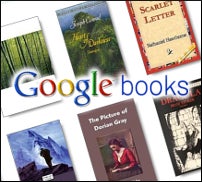 |
In response to an ongoing review by antitrust authorities at the Justice Department, a federal judge in New York has postponed a hearing to weigh the merits of the settlement agreement Google had reached with authors and publishers over its controversial Book Search project.
Judge Denny Chin of the District Court of New York’s Southern District issued an order late Thursday conceding that while the “proposed settlement would offer many benefits to society,” it is unworkable in its current form.
Chin canceled the fairness hearing scheduled for Oct. 7, instead calling for a “status conference” to be held the same day to determine how to proceed with the case.
The prospects for the hearing taking place at the scheduled date diminished considerably after the Justice Department submitted a “statement of interest” to the court outlining numerous antitrust concerns about Google’s (NASDAQ: GOOG) deal with the Authors Guild and the Association of American Publishers.
That settlement, reached last October, was the result of two-and-a-half years of negotiations to resolve a class-action copyright suit the authors and publishers groups had brought against Google in 2005. Critics have assailed the deal on a variety of fronts, including the unique exemption from copyright precedent Google would enjoy, and concerns that the agreement would pave the way for a de facto monopoly in the nascent digital-library market.
In their filing with the court, the U.S. attorneys concluded that the current version of the settlement agreement is untenable, arguing that it would run afoul of copyright and antitrust laws. They praised the effort for its “potential to breathe life into millions of works that are now effectively off limits to the public,” but encouraged the parties to modify the agreement to satisfy the legal concerns.
Last week, representatives of Google and the authors and publishers groups involved in the settlement met with DoJ officials to discuss the concerns with the agreement. The U.S. attorneys filed their statement of interest with the New York court the next day, and it became clear that the settlement would need significant modifications before the litigants could reasonably expect Judge Chin to grant approval.
In a filing with the court this week, the authors and publishers wrote to Judge Chin expressing support for postponing the hearing to address the DoJ’s issues.
“The parties are committed to rapidly advancing the discussions with the DoJ,” they wrote. “Nevertheless, it is clear that the complex issues raised in the U.S. statement of interest preclude submission of an amended settlement agreement by Oct. 7.”
In his order to delay the hearing, Judge Chin noted the value of Google’s Book Search project, but said that the numerous objections submitted by a broad array of parties, including nonprofit groups, law professors and foreign countries, made it clear that the settlement would need to undergo substantial revisions before he could approve it.
“It would appear that if a fair and reasonable settlement can be struck, the public would benefit,” Chin said. At the same time, given the litigants’ commitment to revise the agreement to address the DoJ’s concerns, the judge said that the October hearing would be premature.
“Under all the circumstances, it makes no sense to conduct a hearing on the fairness and reasonableness of the current settlement agreement, as it does not appear that the current settlement will be the operative one,” Chin said.
Responding to Chin’s order, Google highlighted the judge’s comments praising its Book Search project.
“Judge Chin’s order today reaffirmed the promise of the agreement by stating, ‘the proposed settlement would offer many benefits to society,'” the company said in a statement e-mailed to InternetNews.com. “In addition, he urged the process to continue ‘as expeditiously as possible.'”
Some of Google’s critics were less enthusiastic, seizing on the judge’s order to reiterate their objections to the settlement agreement and the manner in which it was negotiated.
The Open Book Alliance, a coalition formed to oppose the deal that includes the Internet Archive, Microsoft (NASDAQ: MSFT), Amazon (NASDAQ: AMZN) and other critics, issued a statement declaring that “the settlement is dead. And any hope for revival of a settlement will require fundamental reforms.”
The group called on Google to begin the negotiating process anew, this time engaging all stakeholders in an “open and transparent manner.”


